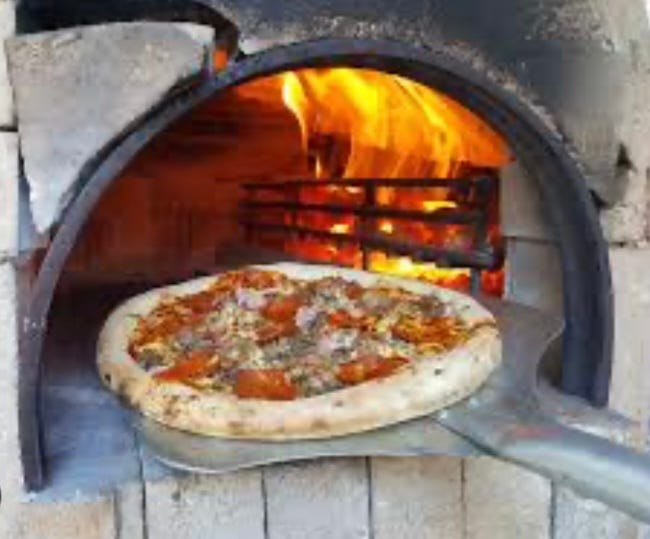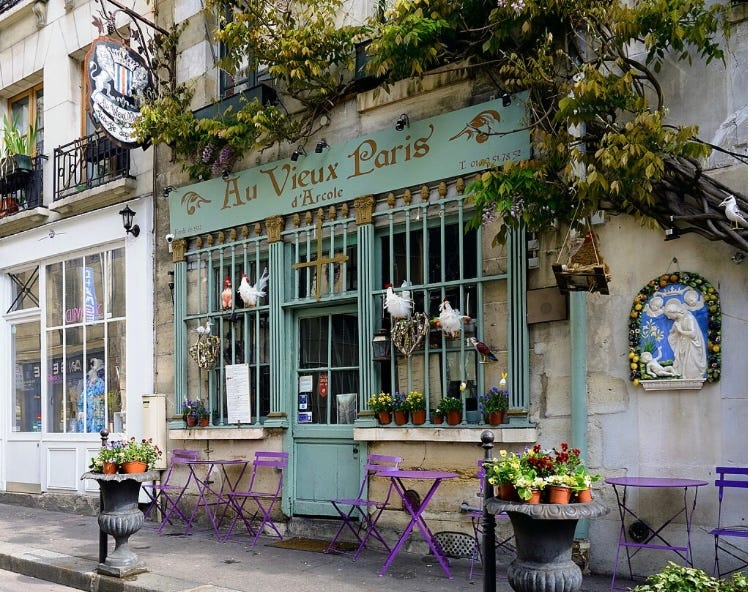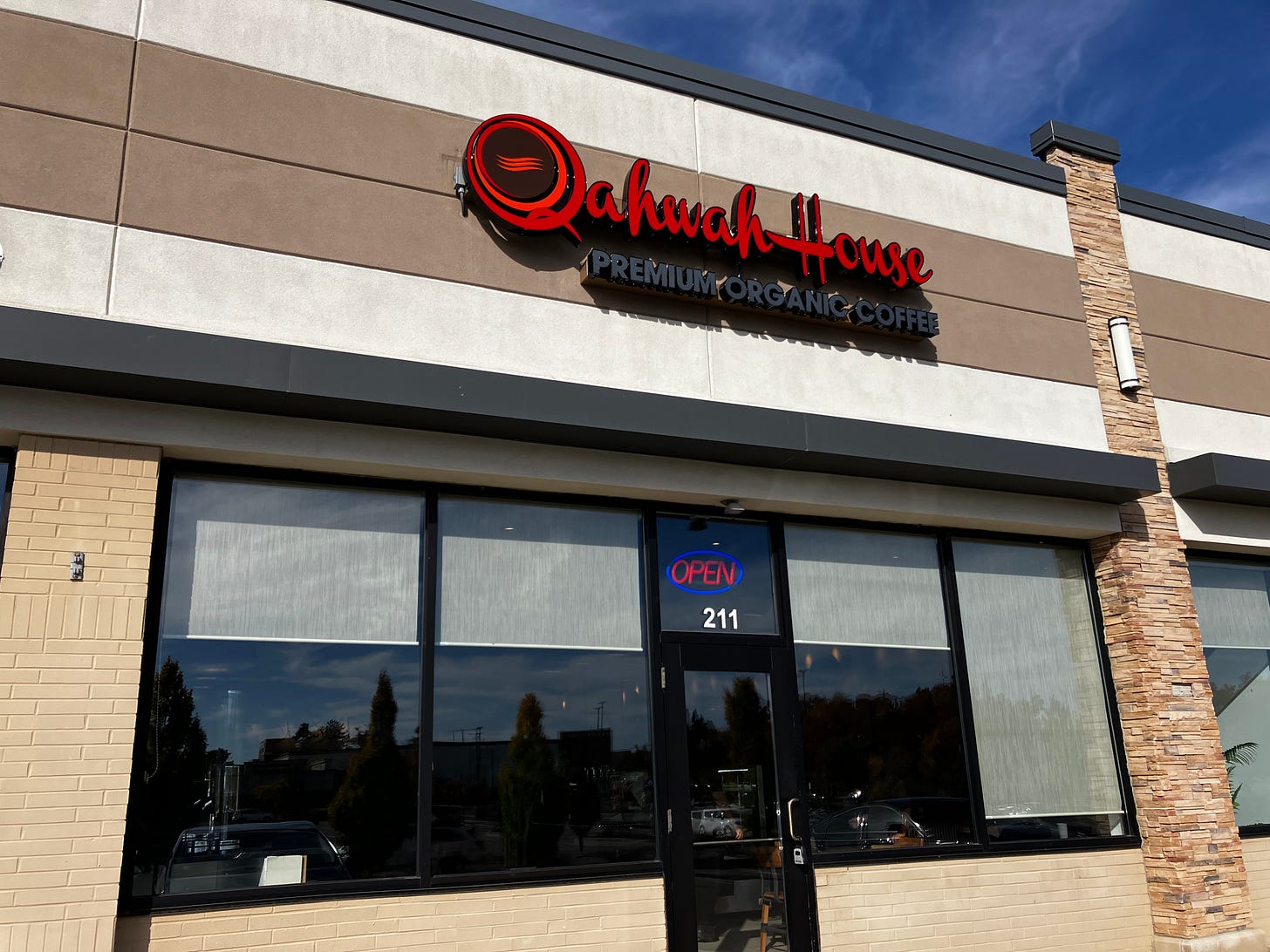Private Restaurants Are Causing An International Ruckus
They're as old as time, but the industry in one big city isn't happy at their popularity
Happy summer, CulinaryWoman subscribers! Welcome to new readers and to those who’ve been with us along the way. I’m also happy to say hello to people who are following me on Substack.
CulinaryWoman is supported by you. We don’t take ads or have sponsors. Along with subscriptions, you can also Buy Me A Coffee in any amount (just click the button).
Next week, CulinaryWoman celebrates its fifth Substack birthday, and I’ll fill you in on what is planned for year six. My hope is that CulinaryWoman will be more focused and useful in your quest to learn about the food world.
Speaking of “world,” there’s a scuffle underway across the Pacific over a type of restaurant that has been around since cooks needed money.
In Singapore, Restaurant Owners Versus Home Cooks
In many cultures, people cook from their homes for paying customers. These secret restaurants come in many forms. Some are known as supper clubs, others are considered pop ups, and more are for carry out or delivery.
The owners get the word out in several ways. Some send texts, while others have email subscription lists. Others rely on information passing between customers. Still more use social media to let people know they’ll be having an event, or how they can place an order.
I’ve attended a bunch of these dinners through the years and I regularly order from some of my favorite private cooks. They make money, and we get to enjoy delicious food. Those direct sales seem to make people happy.
In Singapore, however, home-based restaurants have blossomed into a big deal, and brick and mortar restaurant owners are not happy about it.
The Straits Times reported that these restaurants are serving as many, or more customers, than established places.
Big business from little ones
Long Weekend Pizza can churn out 200 pizzas a day from a wood-fired oven in a bungalow. “Pizza at someone’s house?” a post asked on Pinterest. Yes, indeed.
Little Social serves a multi-course dinner of Peranakan food, a mix of Chinese and Malay cuisine, to up to 60 guests at a time in a stunning traditional town house.
Meanwhile, cocktail spots such as Bar59 have popped up serving customized drinks that can cost up to $25 each.
But restaurant owners say many of these home operations are not subject to the same strict regulatory, licensing and tax requirements faced by bricks-and-mortar restaurants.
Even more troubling to them: these informal places are commanding top prices. Lucky House Cantonese Private Kitchen, run by Sam Wong (pictured above), charges $130 per person and is booked from now until next March.
These operations were legalized under a 1980 law called the Home-Based Business Scheme. The proprietors are not supposed to operate “heavy equipment or appliances” intended for restaurants. Businesses must assure that they do no disturb their neighborhoods.
The Straits Times found more than 150 listings of food and beverage businesses operating out of residential properties, ranging from apartments to single-occupancy homes, but estimated the actual numbers are likely higher.
Loh Lik Peng, the founder of Unlisted Collection, which operates a group of Michelin-starred restaurants, said he doesn’t have a problem with little businesses like those making mooncakes for the new year, or other holidays.
But those with revenues approaching $1 million a year should be considered commercial companies, Loh contends (and you really can’t blame him).
Different rules in the USA
Only two states in the U.S. allow home chefs to sell meals directly to the public as restaurants. California and Utah approved Microenterprise Home Kitchen Operators during the pandemic. But there are strict rules in each state. Counties must opt in to the concept, and set regulations.
All 50 states and the District of Columbia allow cottage food programs, letting bakers and cooks sell limited numbers of homemade items to the public. In most states, these home chefs are allowed to sell “non potentially hazardous foods,” meaning baked goods, jam, cereal and grab and go foods.
They are not allowed to sell hot, home-cooked meals, but can prepare entrees and other dishes if they are properly chilled and stored. Four states — South Dakota, Tennessee, South Carolina and Vermont — only allow the sale of baked goods from home.
In Michigan, cottage food proprietors are limited to annual sales of $25,000. They must sell directly to customers, not via mail order, and restrictions apply to dairy and beverages.
Anyone who goes above $25,000 or who wants to serve different types of food needs to operate from a commercial kitchen.
Back in Singapore, the home-based business owners say that they face their own set of challenges. Lucky House doesn’t operate on weekends, which might be the busiest time, and doesn’t serve small groups. It caps its attendance at three tables of 30 diners.
As Sam Wong says to Straits Times, “Our neighbors might complain, so we have to be very mindful.”
London and Paris Want You To Dine Outside
Restaurant owners in London cheered during the pandemic when the city allowed outdoor dining and cleared streets of car traffic. Now, the practice is returning in several neighborhoods.
According to Metro, the mayor has given out al fresco licenses in places such as the West End, Brixton and Shoreditch.
Sir Sadiq Khan, London’s mayor, says he would like to see outdoor dining and traffic free streets all across the city during the summer, but since he doesn’t yet have that full jurisdiction, these places are first steps.
“London’s food, drink and nightlife scenes are world-class, and I’m determined to do all I can to help them thrive,” he said.
The mayor has been pushing for complete oversight for restaurant licenses. But if he can get it, “this will turbo charge the delivery of more al fresco dining and late night openings,” an aide said.
Across the English Channel, Paris also is loosening some restrictions on restaurants. Mayor Anne Hidalgo is allowing 4,000 cafes with terraces to stay open an additional hour, until 11 p.m.
The longer outdoor hours will remain in effect until Sept. 14. So, there will be ample time for a nightcap or coffee en plein air after dinner.
As often happens in France, not everyone was pleased. Some proprietors complained that they might not be able to find enough staff to work the additional hour.
Farewell To A Much-Loved Celebrity Chef
Frequent viewers of the Food Network were shocked last week at the death of chef Anne Burrell at age 55. Known for her enthusiastic personality and shock of platinum white hair, Anne frequently appeared on food competition shows, beginning as a sous chef on the American version of Iron Chef.
She hosted Worst Cooks In America, and hosted Secrets of A Restaurant Chef, which aired for nine seasons. She appeared on Chef Wanted, Chopped, Food Network Star and most recently on House of Knives.
A variety of fellow chefs, including Andrew Zimmern, Bobby Flay, Giada DeLaurentis, Alex Guarnaschelli and Carla Hall expressed condolences on their social media accounts.
Carla told People, “I'm heartbroken to hear about Anne's passing. She was fierce, funny, and an incredibly talented cook and teacher — someone who brought so much fire and joy to everything she did. I was lucky to work alongside her on Worst Cooks and other nonprofit events. She will be deeply missed."
Food Insecurity Spikes On The Upper West Side
If you’ve seen movies such as When Harry Met Sally or You’ve Got Mail, you may think of the Upper West Side of Manhattan as an appealing place to live. It’s replete with museums, performing arts centers, university buildings and is adjacent to beautiful parks.
It’s also a place where food insecurity has skyrocketed. According to the West Side Rag, the number of people relying on food charities has spiked compared with what it was before the pandemic.
“2024 was our busiest year on record,” Greg Silverman, CEO and executive director of the West Side Campaign Against Hunger (WSCAH), a nonprofit that distributes food to almost 30 sites across the city, told the publication.
For instance, St. Paul and St. Andrew United Methodist Church on West 86th Street, WSCAH’s largest distribution site, was serving roughly 200 families a day in 2019; by last year, that number tripled, to 600.
Up by Columbia University, Cathedral Community Cares (CCC), based at the Cathedral of St. John the Divine serves approximately “three times as many people” now compared to 2019, said Vanessa Greco, CCC’s outreach and volunteer coordinator.
The organizations say an influx of immigrants to New York City over the past few years is a main factor in the increase. These newcomers aren’t necessarily living on the Upper West Side. It’s common for people to commute from all boroughs to visit WSCAH and CCC, according to the program heads.
While the need has grown, funding for these programs has not kept pace with that growth, Greco told the West Side Rag. “The people go up, the grant money stays the same. That’s where the issue is.”
Keeping Up With CulinaryWoman
I wrote a lengthy story for Food and Wine about the rise of Yemeni coffee houses across the U.S. In the article, I call Dearborn, Mich., the Silicon Valley of Yemeni coffee. There are at least 20 coffee shops in the city, and Dearborn will celebrate its annual Coffee Week in September with specials at many places.
On the Lions, Towers & Shields classic film podcast, we discussed Stella Dallas, the 1937 film starring Barbara Stanwyck and John Boles, who you may remember from multiple Shirley Temple movies. By the way, LTS has launched its own page at Bookshop, where you can find books about and associated with the movies we’ve talked about.
I’m so happy to hear from CulinaryWoman readers. Here are some ways to reach and follow me.
Website: www.michelinemaynard.com
Email: culinarywoman (@) gmail dot com
Threads and Instagram: (@) michelinemaynard
Bluesky: mickimaynard.bsky.social
TikTok: CulinaryWoman
I’ll be back tomorrow for paid subscribers with Red Beans & Advice. An unexpected vegetable is elbowing its way into dishes and pastries.
Please stay cool in the midst of this early summer heat! See you next Sunday for our fifth anniversary edition. Thanks for reading.









